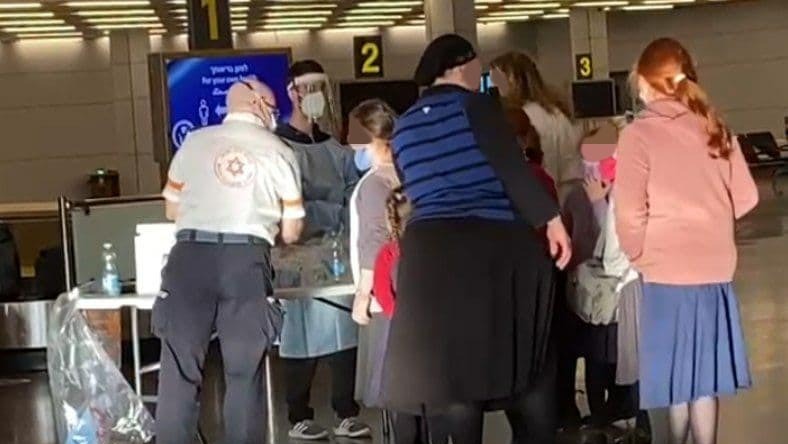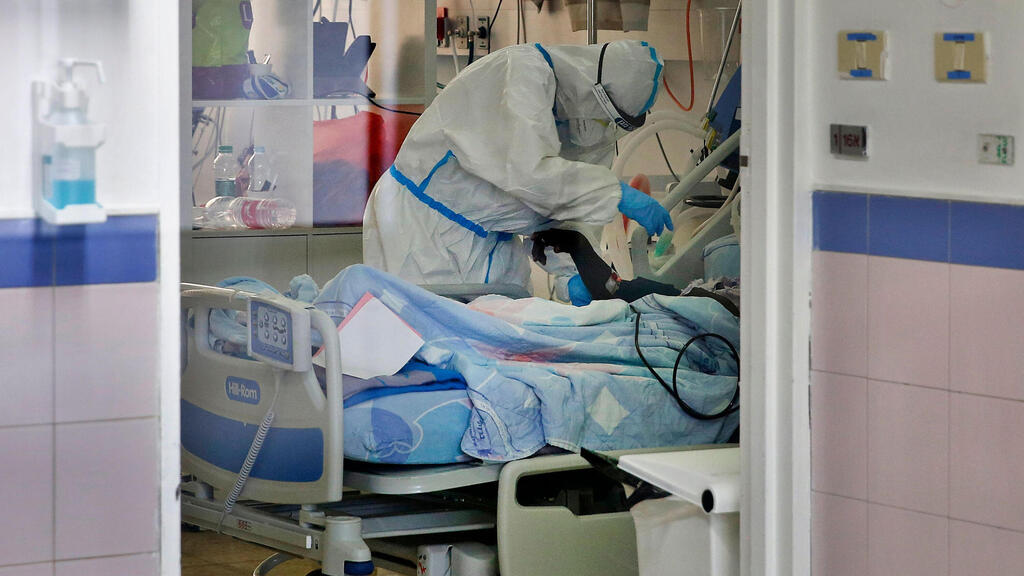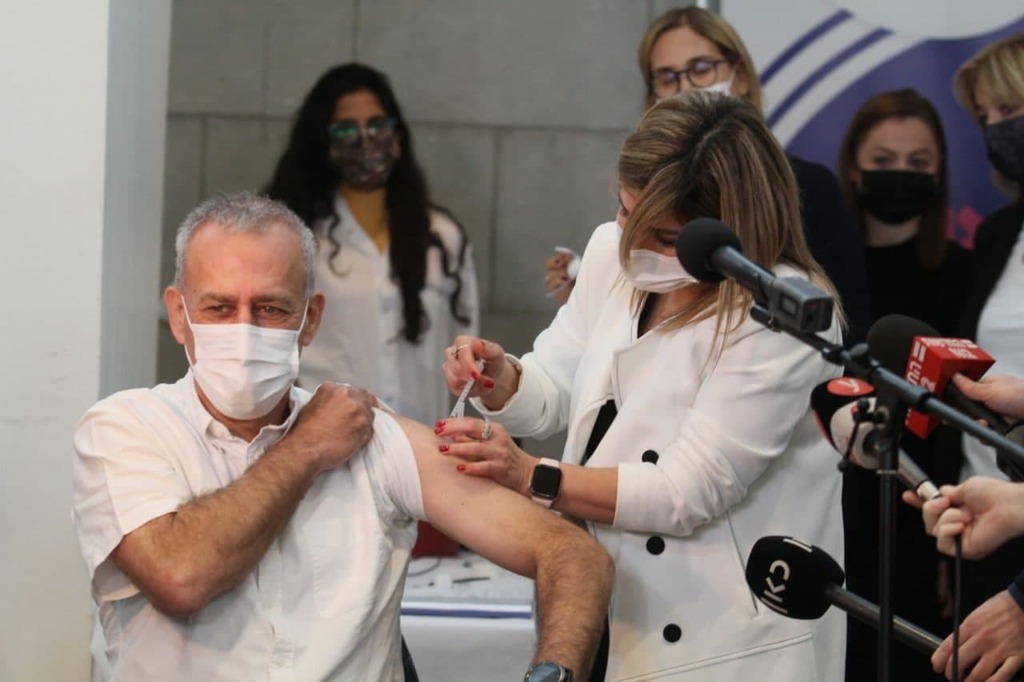Getting your Trinity Audio player ready...
The coronavirus cabinet was meeting late Monday morning to decide whether all Israelis returning from abroad should be required to go into prolonged isolation, a day after the measure was brought into effect for returnees from the UK, Denmark and South Africa over fears of a mutated strain of the coronavirus.
A discussion on a possible third lockdown to the stem the continued spread of the coronavirus was dropped from the agenda.
4 View gallery


Police wait at Ben-Gurion Airport to escort Israelis returning from the UK to a quarantine hotel Sunday
(Photo: Yariv Katz)
Prime Minister Benjamin Netanyahu is pushing for all arrivals from abroad be required to quarantine and that all non-Israelis be banned from entering Israel.
His proposal, if accepted, would mean that Ben-Gurion International Airport would be shut for a period of two weeks, excluding special flights.
"The cabinet is meeting for just one reason - closing the skies," Netanyahu said Monday.
On Sunday, ministers decided to require all arrivals from the U.K., Denmark and South Africa must quarantine in government-operated coronavirus hotels to prevent the spread of the new, mutated strain of coronavirus.
The decision was made as two flights from London were en route to Israel, carrying a total of 120 Israeli passengers. Dozens of the passengers decided to return to the UK rather than go into isolation, despite having been informed before boarding of the new policy.
Transportation Minister Miri Regev is opposed to the move, saying the circumstances do not call for such a drastic step.
4 View gallery


Passengers arriving from the UK on Sunday were told they must quarantine at dedicated coronavirus hotels
The Health Ministry on Monday morning reported that 2,821 new COVID-19 cases were confirmed on Sunday, after 70,000 tests conducted, indicating a 4.1% positivity rate.
Of 24,999 patients currently battling the disease, 456 are in serious condition, with 117 connected to ventilators. Eight people have succumbed to the virus in the past 24 hours, raising the death toll since the start of the pandemic to 3,101.
Coronavirus czar Prof. Nachman Ash, who backs the closure of the airport, also told the ministers on Sunday that he recommends a partial lockdown that includes suspension of all commerce.
Ash said the rise in the number of seriously ill patients surpassed the amount recorded in November.
He warned that with no mitigation measures taken, Israel would see up to 1,900 seriously ill patients within three months and the death toll rise by up to 1,250 in the same period.
National Security Advisor Meir Ben-Shabbat also expressed his preference for a full lockdown, while Health Minister Yuli Edelstein said the difference between a partial and full closure was the education system.
"The cost to the economy in the event of the suspension of commerce cannot be compared to the damage caused to the education system," Edelstein said.
"I prefer to keep schools open for as long as possible."
First published: 09:16, 12.21.20



